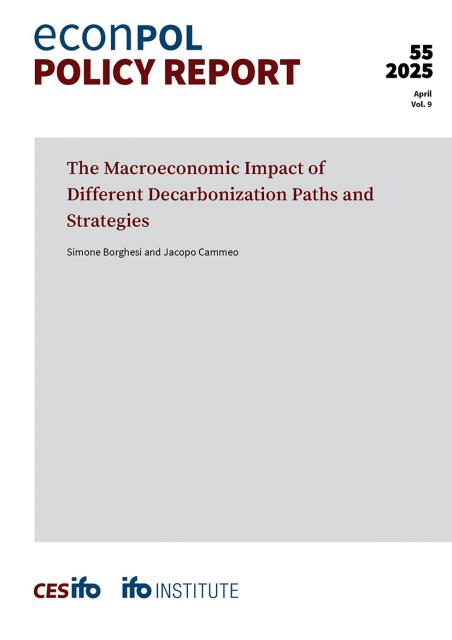The Macroeconomic Impact of Different Decarbonization Paths and Strategies
The severe upheavals caused by anthropogenic climate change have led to an increasing global effort to mitigate the negative effects of global warming. In this, the European Union has taken the lead in pioneering initiatives to achieve carbon neutrality as a continent by 2050. The climate policies put in place follow a deep decarbonization approach, aiming at a quick response to the climate crisis through the pursuit of stringent goals. These numerous and ambitious policies have led to some encouraging results, but they look challenging for their potential impact on the socio-economic system.
The existing literature and the work of relevant research centers on environmental economics find that the paradigm shift should not lead to significant effects on macroeconomic variables such as GDP, inflation, employment, investment, and industrial production. However, it is clear that the qualitative transformation required to move from a fossil fuel-based society to a net-zero carbon one is not painless. At least in the short term, stringent climate policies may take on the contours of a real shock, with potentially unfavorable and, above all, unfair macroeconomic repercussions. If not properly guided, the phasing out of fossil fuels and the extension of carbon markets to new sectors not previously covered by the mechanism might impact the most vulnerable segments of the population, squeezing economic development, negatively affecting employment, and undermining consumption.
To avoid the adverse effects of decarbonization, Europe has several mechanisms at its disposal, such as the Just Transition Mechanism, the redistribution of EU ETS2 revenues to the Social Climate Fund, and plans for clean industrial production and green technologies. However, further efforts will be needed to mitigate the impact of the net-zero strategy on citizens’ purchasing power, avoid stranded assets, sustain green conversion efforts of the industrial system, and support the development of new technologies such as carbon capture, utilization, and storage.
The new European Commission will have to deal with a complex macroeconomic situation already geared toward stringent but fair climate policies. The hope is to meet the planned timetable without compromising the socio-economic system, respecting the motto “leave no one behind” and at the same time coming close to the stringent goals of the Paris Agreement.
Simone Borghesi and Jacopo Cammeo (2025), “The Macroeconomic Impact of Different Decarbonization Paths and Strategies”, EconPol Policy Report 55.
